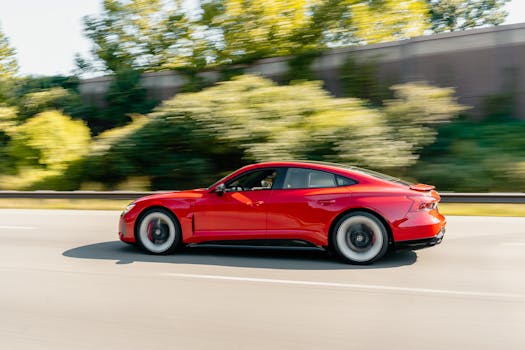
The Future of Transportation: Embracing Electric Vehicles and Autonomous Systems
Takeaways:
- Electric vehicles (EVs) are revolutionizing personal and public transport.
- Autonomous systems are enhancing safety, efficiency, and convenience.
- Sustainability and green technology are driving the shift in transportation.
- The integration of smart mobility solutions is reshaping urban landscapes.
The transportation sector is undergoing a profound transformation, driven by technological advancements and a growing commitment to sustainability. Electric vehicles (EVs) and autonomous systems are at the forefront of this revolution, promising not only to change how we travel but also to address critical challenges such as climate change and urban congestion. In this article, we will explore the emerging trends, benefits, and innovations associated with electric vehicles and autonomous systems in the future of transportation.
The Rise of Electric Vehicles

One of the primary drivers of EV adoption is the significant decrease in battery costs. Lithium-ion batteries, which power most electric vehicles, have seen their prices drop by nearly 90% since 2010. This reduction has made electric vehicles more affordable for the average consumer, contributing to a surge in sales. Major automotive manufacturers are investing heavily in EV technology, with many pledging to transition their entire fleets to electric in the coming years.
Moreover, the expansion of charging infrastructure is crucial for the widespread adoption of electric vehicles. Governments and private entities are collaborating to create an extensive network of charging stations, making it easier for EV owners to recharge their vehicles and alleviating range anxiety. Fast-charging technology is also advancing, enabling drivers to recharge their vehicles in a matter of minutes rather than hours.
Additionally, the environmental benefits of electric vehicles are substantial. By using electricity generated from renewable sources, EVs can significantly reduce carbon footprints compared to their gasoline or diesel counterparts. This shift is vital for achieving global climate goals and moving towards a more sustainable future.
Autonomous Systems: The Next Frontier in Mobility

One of the most significant advantages of autonomous systems is enhanced safety. Human error is a leading cause of road accidents, and by removing the human factor, the potential for accidents can be drastically reduced. Autonomous vehicles utilize a combination of sensors, cameras, and artificial intelligence to perceive their environment and make driving decisions, offering a level of precision and responsiveness that surpasses human capabilities.
Moreover, autonomous vehicles can improve traffic flow and reduce congestion. By communicating with each other and with traffic management systems, these vehicles can optimize routes, maintain safe following distances, and reduce stop-and-go traffic, ultimately leading to more efficient transportation networks.
In urban areas, the integration of autonomous systems can transform public transportation. Autonomous buses and shuttles can provide on-demand services, reducing the need for fixed routes and schedules, thereby offering greater flexibility and convenience for commuters. This shift can also alleviate the strain on public transport systems, making them more efficient and user-friendly.
Conclusion






